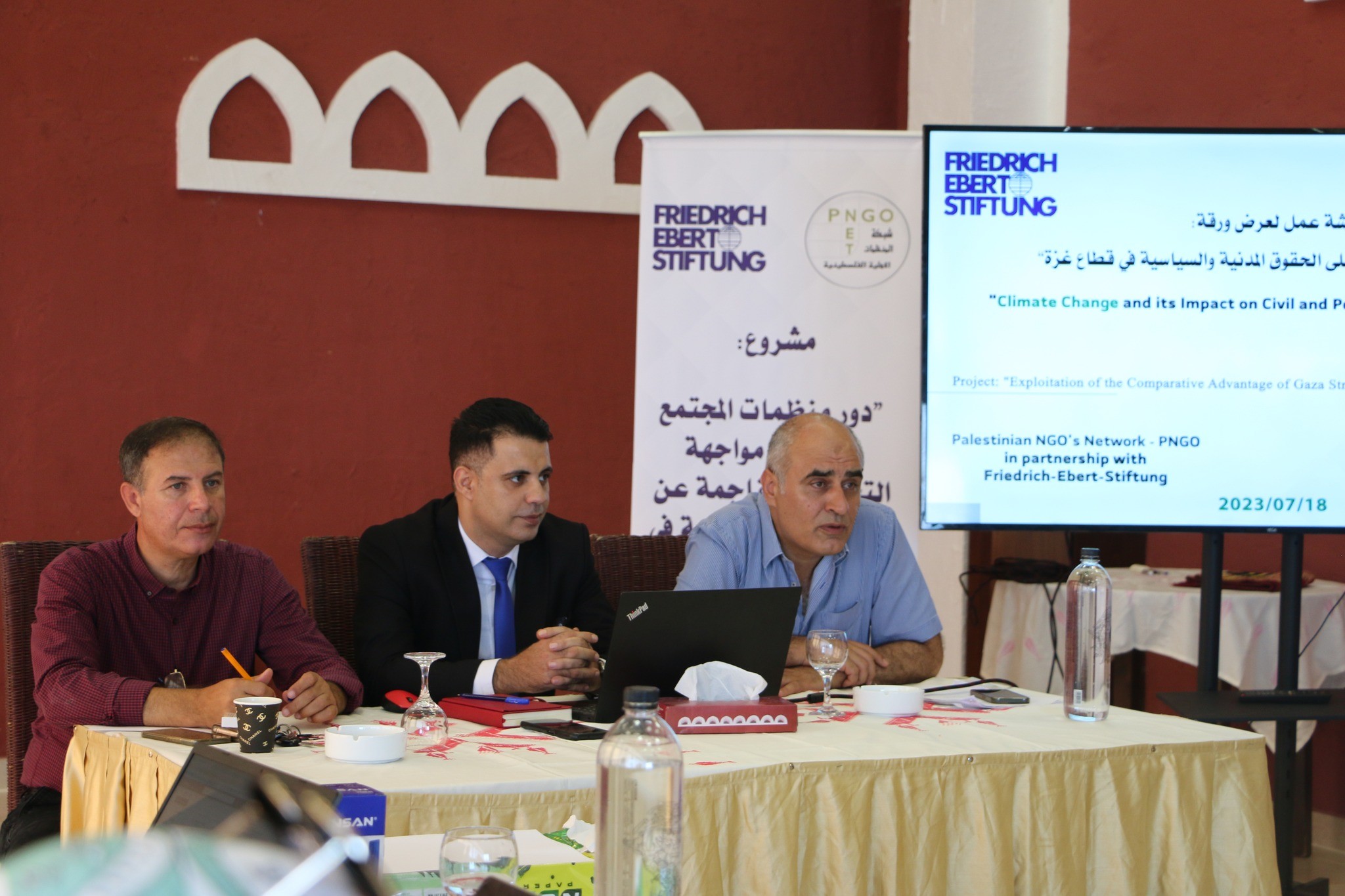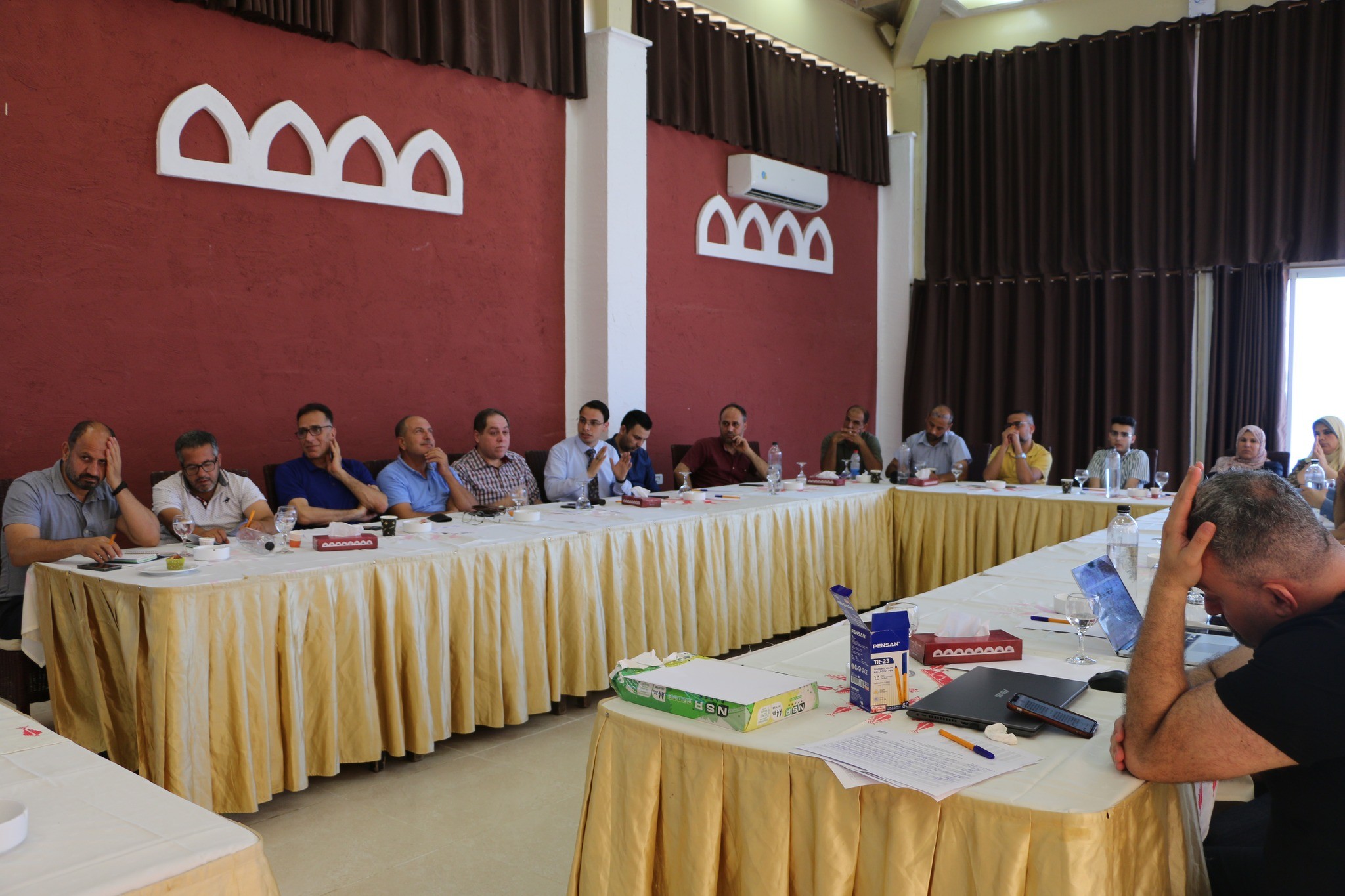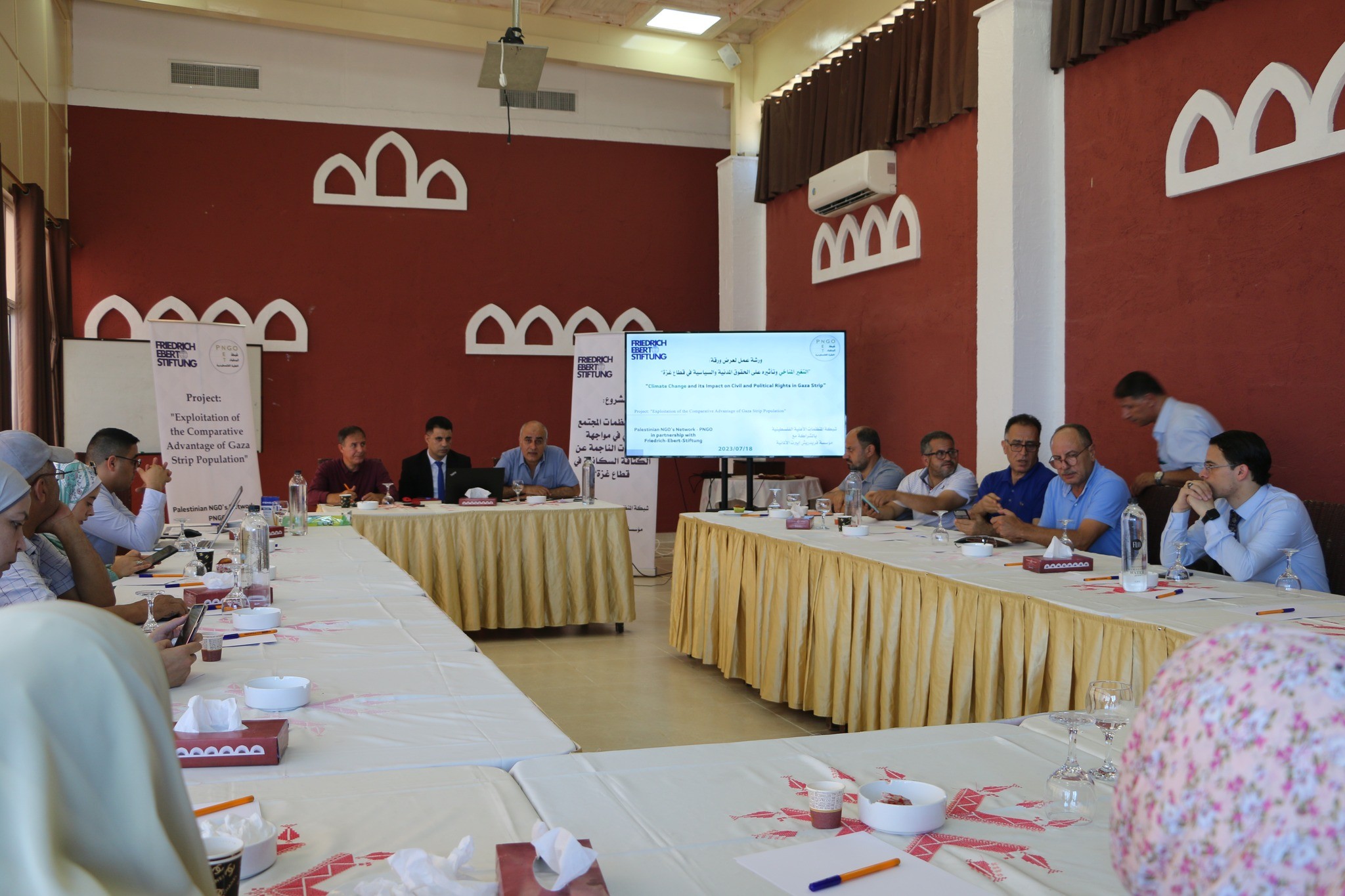Experts and representatives of civil society organizations and private sector institutions called for the necessity of taking sufficient measures to mitigate the impact of climate change whose continuation leads to further infringement of civil and political rights, as well as economic, social, and cultural rights. They emphasized the importance of raising awareness about the intersection of civil and political human rights with climate change in Palestine in general and in the Gaza Strip in particular, highlighting the challenges they face and the impact of climate change on a range of rights.
That was discussed during a workshop organized by PNGO Network to present a paper prepared by researcher Samir Al-Manama entitled "Climate Change and its Impact on Civil and Political Rights in the Gaza Strip", in partnership with Friedrich Ebert Stiftung in Gaza City. Participants stressed the importance of highlighting the challenges that they face and the impact of climate change. In addition to building local capacity and knowledge of climate change adaptation and mitigation strategies.

The director of PNGO Network, Amjad Al-Shawa, opened the workshop, stating that Gaza Strip, like other parts of the world, is affected by climate change, but the danger index rises rapidly due to the deteriorating social and economic conditions, lack of resources and capabilities or the inability to use such capabilities, weak strategies, and governmental plans to reduce climate-related risks. The ongoing Israeli blockade, which has lasted for almost sixteen years, further complicates the situation, with various restrictions imposed by Israeli authorities affecting different aspects of life in the Gaza Strip.
Climate changes have affected economic, social, and cultural rights, such as the right to safe drinking water, suitable housing and food, health, and work. These effects are a result of flooding, water pollution, air pollution, agricultural land depletion, rising temperatures, sea-level rise, rainfall, droughts in other regions, and chemical and nuclear uses.
Dr. Osama Antar, the programs director at the Friedrich Ebert Stiftung, expressed that their partnership with PNGO Network this year aims to create a better future for Gaza Strip. He highlighted that climate change affects the ability of citizens to enjoy their civil and political rights guaranteed under Palestinian basic law, in addition to affecting the rights to health, work, housing, and access to safe drinking water and food security.
The paper presented by Samir Al-Manaama discussed the concepts and terminology related to climate change, the climate change situation in the Gaza Strip, the underlying causes (both external and internal), the nature of civil and political rights affected by climate change, and the expected solutions and measures that the responsible authorities in Gaza should take to reduce the risks of climate change.
He pointed out that the coastal and marine environment in the Gaza Strip faces several environmental problems, such as pollution, which affects the quality of fish. The disposal of solid waste has worsened due to successive Israeli wars in Gaza. He highlighted the fact that there is a major crisis regarding the availability of safe drinking water, with approximately 92.2% of groundwater in Gaza not meeting the World Health Organization's quality standards, especially concerning chloride and nitrate concentrations.
Mr. Al-Manaama stated that the crises facing Gaza, including pollution of seawater and drinking water, the practices of the occupying forces, such as agricultural land bulldozing and pesticide spraying, in addition to the resulting killings of fishermen and farmers, threaten and deprive the citizens of their right to life. Contamination of drinking water and the destruction of wells by the occupation will hinder the right to access safe drinking water, which poses a threat to human life.
 He emphasized that human rights are interrelated, and the forms of climate change in the Gaza Strip affect economic, social, and cultural rights, such as the right to health, work, housing, access to safe drinking water, and food security. The impact on the aforementioned rights extends to other rights as the deterioration of climatic conditions especially in cases of low pressure areas and severe storms affects the right to work, which belongs to the group of economic, social, and cultural rights. However, the right to litigation, which belongs to civil and political rights, will be affected in this way, given the inability of members of the judiciary to go to their places of work the matter that will lead to the postponement of cases and trials.
He emphasized that human rights are interrelated, and the forms of climate change in the Gaza Strip affect economic, social, and cultural rights, such as the right to health, work, housing, access to safe drinking water, and food security. The impact on the aforementioned rights extends to other rights as the deterioration of climatic conditions especially in cases of low pressure areas and severe storms affects the right to work, which belongs to the group of economic, social, and cultural rights. However, the right to litigation, which belongs to civil and political rights, will be affected in this way, given the inability of members of the judiciary to go to their places of work the matter that will lead to the postponement of cases and trials.
He added, "The failure of the competent government agencies to take adequate measures to limit the impact of climate change will lead to further prejudice to civil and political rights, as well as economic, social and cultural rights, noting that public rights and freedoms cannot be separated from each other as they are close interdependence and the ability to exercise a specific right lead to the ability to exercise another right, and vice versa".
At the end of the workshop, the participants emphasized a set of practical recommendations to put into practice, starting with collective awareness operations in the community about the dangers of climate change and modernizing the education system to create real awareness in the local community. They pointed out the importance of strengthening the role of the press and media in highlighting the problem and practical solutions and pressing for the enactment of national policies and legislations capable of protecting citizens from the negative effects of climate change.




